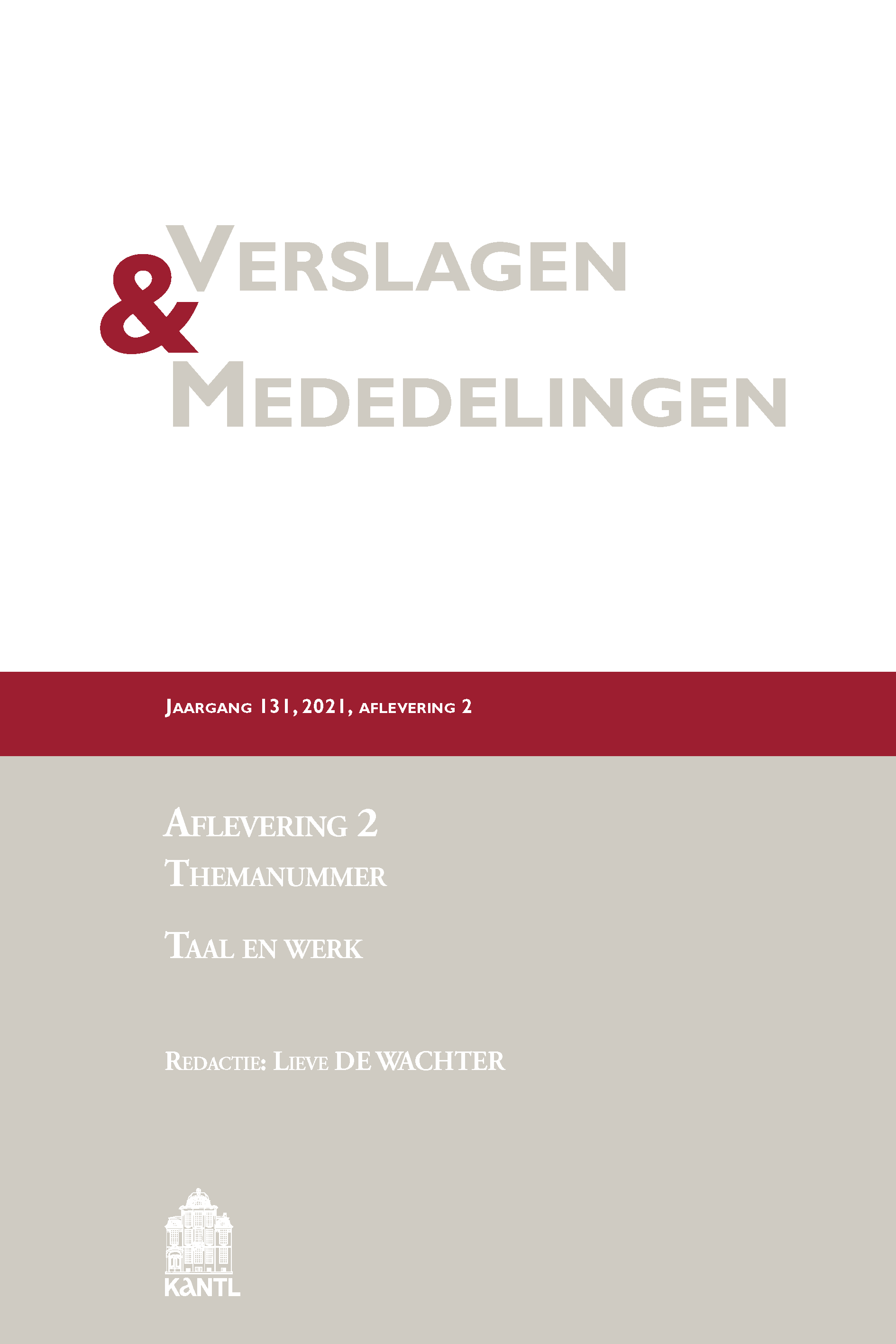Kiezen is verliezen? Een experimentele studie naar de spanning tussen tekstoordeel en stigmatisering in communicatie over middelenafhankelijkheid
Samenvatting
Abstract (Nederlandstalig)
De manier waarop mensen met een verslaving benoemd worden, kan een invloed hebben op de manier waarop ze worden gepercipieerd. In communicatieadviezen wordt vaak verondersteld dat people-first-terminologie (bv. iemand met een drugsverslaving) minder stigmatiserend is dan problem-first-terminologie (bv. drugsverslaafde). Opvallend daarbij is dat de stigmareducerende optie op taalkundig vlak echter meestal omslachtiger lijkt en zo een mogelijke bedreiging vormt voor de leesbaarheid van een tekst over middelenafhankelijkheid. Zo kan een spanning ontstaan tussen stigmareductie en leesbaarheid, twee cruciale aspecten in succesvolle overheids- en preventiecommunicatie. Dat is wat deze studie onder de loep neemt, door na te gaan of people-first-terminologie daadwerkelijk stigmareducerend werkt enerzijds en of het een impact heeft op de gepercipieerde leesbaarheid van een tekst anderzijds. Drie versies van een tekst over iemand met een middelenproblematiek werden aan 137 scholieren voorgesteld in een tussenproefpersoondesign. Respondenten werd gevraagd naar hun beoordelingen van de middelengebruiker zelf, naar hun waardering van de tekst, en naar hun directe inschatting van de gevoelswaarde en beledigingsgraad van een reeks people-first- en problem-first-benamingen. Resultaten tonen aan dat de gehanteerde terminologie geen invloed heeft op stigma, noch op leesbaarheid van de beoordeelde teksten. Wel werd vastgesteld dat respondenten geïsoleerde people-first-labels minder negatief en minder beledigend vinden dan problem-first-alternatieven. Die laatste bevinding suggereert dat stigmareducerende terminologie die de persoon, eerder dan zijn probleem voorop stelt, de meest aangewezen optie is voor overheids- en preventiecommunicatie.
Keywords: stigma; leesbaarheid; preventiebeleid; people-first language
Abstract (Engelstalig)
The manner in which people with addiction are referred to can influence how they are perceived. Recommendations for communication often assume that people-first terminology (e.g., someone with a drug addiction) is less stigmatising than problem-first terminology (e.g., drug addict). Interestingly, the stigma-reducing approach tends to be linguistically more cumbersome and therefore poses a potential threat to the readability of texts about substance dependence. This creates a tension between stigma reduction and readability, two vital dimensions of successful government and prevention communication. This study investigates that tension, it examines whether people-first terminology actually has a stigma-reducing effect, and whether that terminology has an impact on the perceived readability of said communications. Three versions of a text about someone with a substance use disorder were presented to 137 schoolchildren by means of an intermediate sample design. Participants were asked about their assessment of the substance user themselves, about their appreciation of the text, and about their immediate estimation of the perceived value and degree of offence of a range of people-first and problem-first designations. The findings indicate that the chosen terminology has no bearing on stigma, nor on the readability of the assessed texts. However, the study did establish that participants found isolated people-first labels to be less negative and less offensive than problem-first equivalents. Therefore, the latter finding suggests that stigma-reducing terminology that puts the person first, rather than the problem, is the most appropriate option for government and prevention communication.
Keywords: stigma; readability; prevention policies; people-first language
- Auteurs behouden de auteursrechten en geven het tijdschrift het recht van eerste publicatie van het werk onder een Creative Commons Attribution Licentie die anderen het recht geeft het werk te delen onder vermelding van het auteurschap van het werk en de eerste publicatie in dit tijdschrift.
- Auteurs mogen separate, additionele contractuele overeenkomsten aangaan voor het niet-exclusief distribueren van de door het tijdschrift gepubliceerde versie van het werk (bv. plaatsing in een institutionele repository of publicatie in een boek), onder vermelding van de eerste publicatie in dit tijdschrift.
- Auteurs hebben het recht en worden aangemoedigd om hun werk online beschikbaar te stellen (bv. in institutionele repositories of op hun website) voorafgaand aan en gedurende de inzending, aangezien dat kan leiden tot productieve discussies, sneller en meer citaties van het gepubliceerde werk (Zie The Effect of Open Access).


